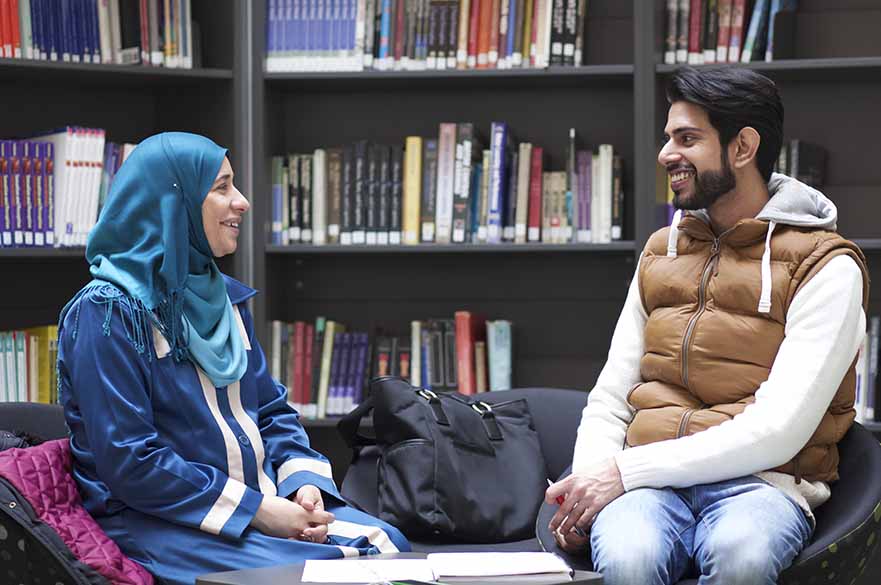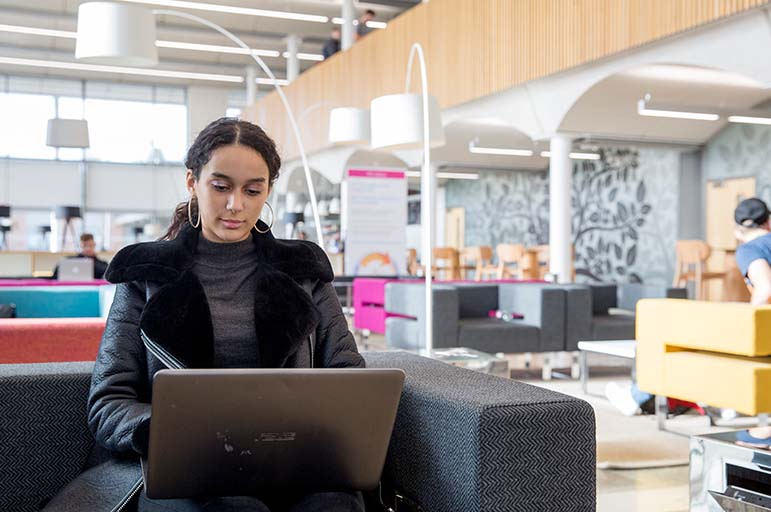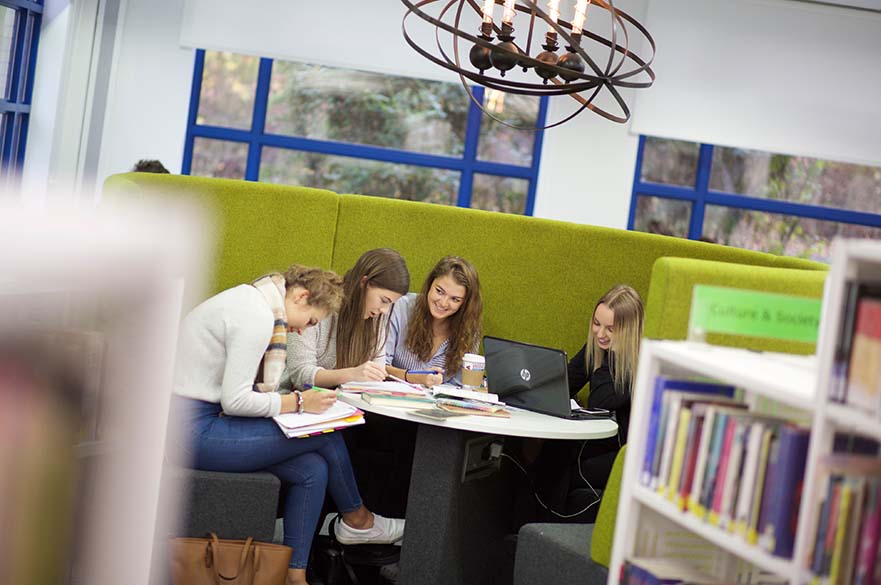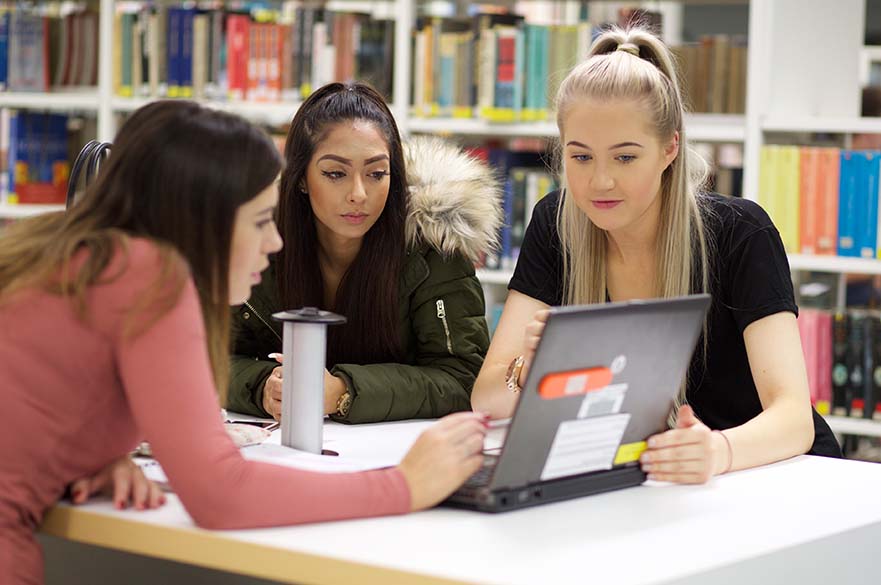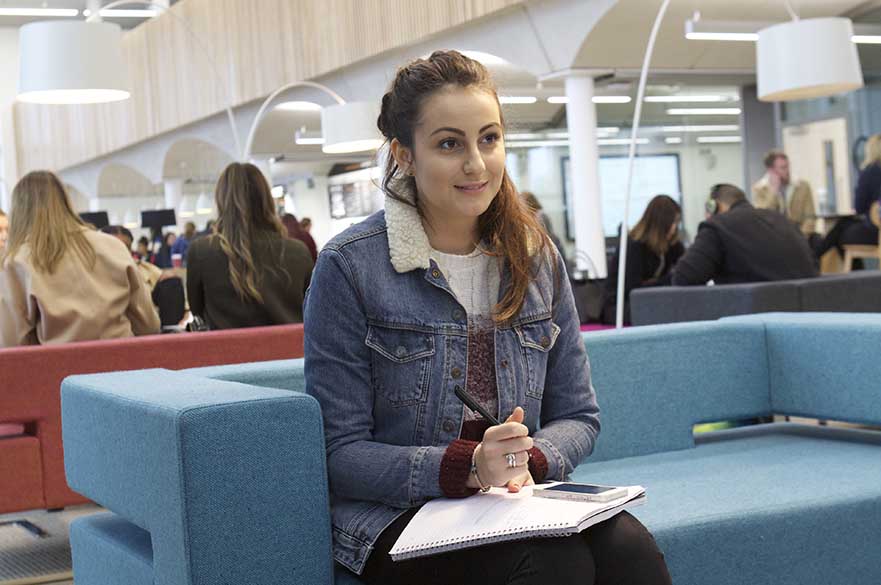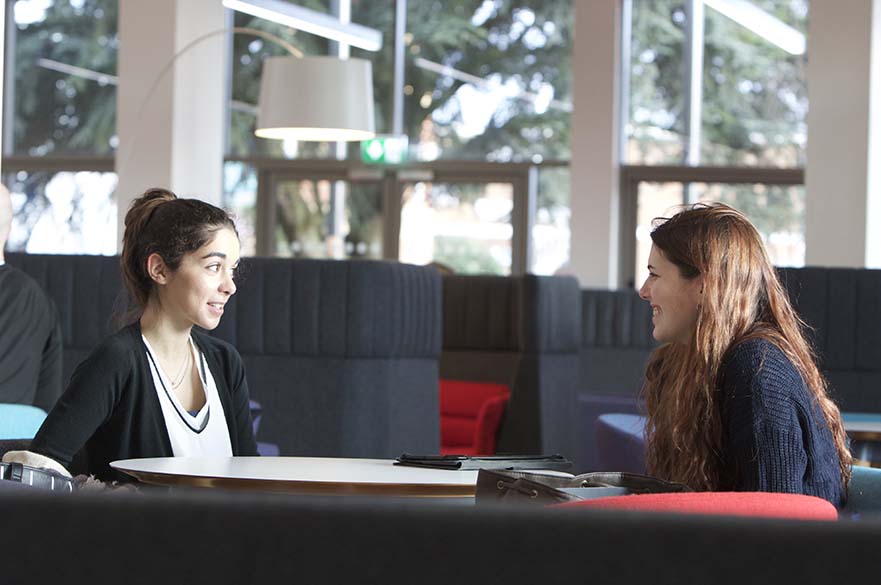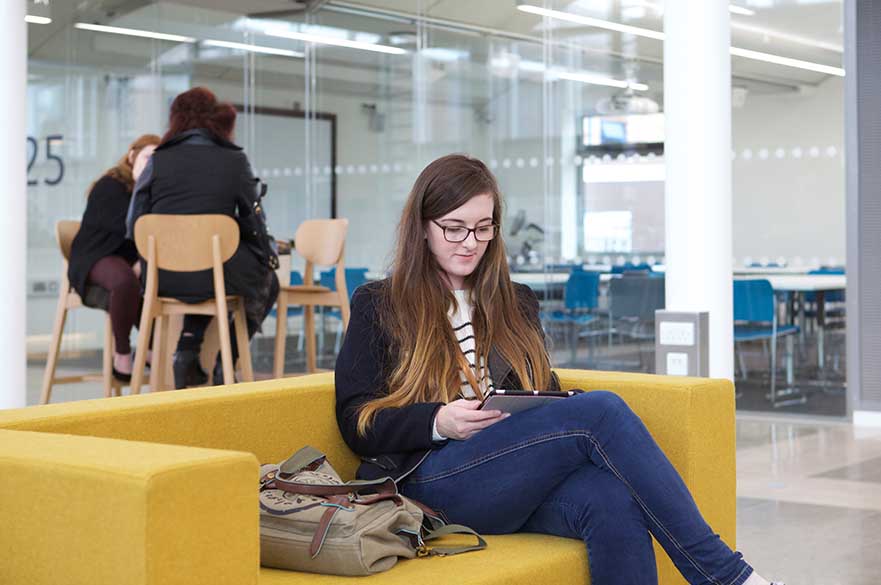Beat the Clearing queue
About this course
Understand contemporary human identities and behaviours through the complex and contested historical, political, social, environmental and ideological forces that shape our experiences.
A degree in Communications and History is a powerful combination that can equip you with the skills and knowledge needed to make a difference in the world. With a deep understanding of human communication and the historical context in which it occurs, graduates of this program are well-prepared to tackle the complex challenges of the contemporary world.
Communications modules provide a broad and diverse understanding of human interaction and the ways in which people communicate with each other. This includes not only verbal communication, but the use of media and technology, political communications and the art of persuasion.
History modules provide a crucial framework for understanding the complex and interconnected world we live in. By examining the events, movements, and people of the past, you will gain a deep appreciation for how the world we know today came to be: the present is a direct legacy of a complex past. This knowledge will give you a critical perspective on contemporary issues and allow you to make informed decisions as a citizen, leader, or professional.
Combining these two fields of study can lead to a powerful and inspiring career path. You could work as a communications specialist in a non-profit organization, helping to raise awareness of social issues and advocating for change. Alternatively, you might work as a public relations professional, helping businesses and organizations to effectively communicate with their customers, employees, and stakeholders. You could also pursue a career in journalism, bringing historical context to current events and helping people to make sense of the world around them.
No matter what path you choose, a degree in Communications and History can provide a solid foundation for a meaningful and impactful career. You will have the skills, knowledge, and perspective needed to make a real difference in the world, and the inspiration to do so.
Find out more about History
We’re running an activity for 16 - 18 year olds to give you a taster of what it is like to study at NTU.
Once you register your interest, we’ll email you information nearer to the day.
Thursday 12 June, 10 am - 3 pm
What you’ll study
Each year you’ll study a number of core modules from the lists below and you’ll have the opportunity to select from a range of optional modules to give yourself a more specialised pathway, depending on your interests.
In the second half of Year Two you can take your learning into your own hands and choose an extended work placement, learn at one of our many partner institutions worldwide, or continue to study here with a wide range of interesting optional modules to choose from.
Work-like experience
Work-like experience is embedded throughout your degree, ensuring that you are given multiple opportunities across three years to develop your career goals and build the skills and experience needed to achieve them. These embedded work-like experience opportunities are much more than a placement, and ensure that you develop the skills and competencies that employers demand. You will take part in a minimum of 240 hours of work-like experience during your course, with the option to take an extended 10-week work placement in your second year.
What does work-like experience mean?
Work-like experience defines a wide range of activities which will build your skills and hone your confidence to prepare you for a professional career after graduation. You will be given opportunities to engage in client-led projects, volunteering, consultancy, professional development, vocational training, project management and team work. You will expand and enhance your creative and communications skills through practical projects, producing podcasts and videos, organising campaigns, curating social media content and visual media. This rich and diverse experience will ensure that you graduate with the skills and confidence to thrive in your own career path.
Transformation modules
Each year you will take a core collaborative module. These modules are linked and will build on each other to ease you into University life, support you with mentoring and personal tutoring, begin your professional development, and expand your horizons with collaborative projects and assessments both within your subjects and wider afield.
Core modules
Understanding the Communications Revolution
Explore the dynamics of digital culture which underpin the ‘communications revolution’. You’ll examine a range of media technologies and creative industries centred on the internet explosion, which together have arguably transformed the nature of life in the 21st century. And you’ll be asked to consider some of the key questions – about ownership, power and control - which accompany these changes.
Psychology of Communication
This module is designed to demonstrate the centrality of communications, not just to the functioning of society, but also for the very constitution of who we are as individuals. Based within, but by no means contained by, the field of Social Psychology, it looks at how people communicate with one another both verbally and non-verbally. It also considers the role of both conscious and sub-conscious processes. Other key topic areas include the arts of conversation and persuasion, the psychology of leadership, group dynamics and intergroup relations.
Europe since 1789: Revolution to Referendum
Explore the ideas, ideologies, and political, social, and economic changes associated with the development of Western Europe and the European States from the late 18th Century to the end of the 20th Century. You will examine revolutions and unifications, empire and colonisation, war and state, the rise of communism and fascism, and the intellectual, economic, cultural and social developments that shaped the modern world.
America 1607-2020: From Colony to Superpower
This module examines the rise of the United States, from its colonial origins to the global superpower it is today. We will consider themes of colonialism, race, slavery, and gender as we explore the connections between America’s past and present. By the end of the module, you will understand the origins of modern American nationalism, and of the development of social movements such as Black Lives Matter.
Transformation: Agency and Self
This first-year module introduces you to interdisciplinary study with a focus on how the humanities help us to understand what is means to be human from different disciplinary perspectives, providing you with opportunities to explore and make connections between your subjects. The module introduces the role and value of the humanities to contemporary society. It also encourages you to better understand, and reflect on, your own place within your course and on your academic, personal, and professional development as you transition to higher education. In doing so, the module develops your key academic skills, introduces NTU support, and helps to create a sense of community and belonging for students studying courses in Joint Honours Humanities. For this module you will be assessed through a creative project based on a live brief, and a piece of reflective writing.
Optional modules typically include - choose one
Journalism and Promotional Cultures
Your introduction to the field of professional media communications. By looking at debates around fake news, the operations of propaganda and controversies around celebrity culture, you will develop a combination of theoretical insights and practical skills, which will hep you produce a PR campaign around a person of your choice.
History Matters
Making History helps you prepare for university-level History by teaching research methods, source analysis, and data presentation. You'll develop key skills and explore diverse historical perspectives with expert academics.
Core modules
The Historian's Craft
This module explores the role of the historian, and the purpose of history as a discipline, examining how historical narratives develop, and why historians rarely agree. You will be introduced to a range of source collections and guided through how to critically examine and analyse this material as historical evidence.
Explorations in Identity and Selfhood
This module looks at a range of psychological and sociological theories of identity and selfhood. Starting with our common sense understandings and a focus on 'personality', it moves out towards more radical theories and arguments, which see identities as more contingent and de-centred.
Transformation: Agency and World
This second-year module enables you to develop your understanding and practice of interdisciplinary study through a focus on the role and value of the humanities for understanding and engaging with sustainable futures and the future of work, beginning with addressing challenges we face in the present and actions we might take. Interrogating local, national, and global sustainability frameworks from a multi- and interdisciplinary perspective, the module provides an opportunity for you to bring together both of your subjects to address questions of sustainability and enterprise in a variety of sectors and contexts. The module enables you to reflect on your own place within these debates and their relation to your academic, personal, and professional development. As part of the module all students will complete an 80-hour work placement experience. You will be assessed through a professional portfolio and placement report.
Optional pathways
Pathway 1: Extended work-like experience
Get the experience you need for after you graduate, and really understand how the things you study translate into the world of work with a work placement. Your highly experienced Employability Team will help you find a placement to suit your career goals from our huge network of companies, charities, institutions, and beyond.
Pathway 2: An international exchange
Travel the world, meet new friends, and have experiences you will remember for the rest of your life.
Our flexible curriculum has been designed to allow some amazing opportunities for you. Your second year of study is divided into two semesters, giving you the opportunity to take part in an international exchange. You could study with one of international exchange partners in Australia, Europe, USA, Canada, Thailand and many, many more.
Our dedicated team will support you in finding and arranging a suitable exchange. And don't worry about the cost, they will help you apply for any grants or loans you may need, as no one should miss out on the chance to broaden their horizons.
Pathway 3: Taught modules
Interdisciplinary optional modules typically include:
Intercultural Communication at Work
Gain the knowledge, skills and strategies to build your intercultural communication competence. Analyse and reflect on the impact of culture(s) on your values, assumptions, perceptions, expectations, and behaviours. Build successful verbal and non-verbal communication strategies in different intercultural settings.
People and Planet: pasts, presents, and futures
In this module you will develop an understanding of the human impact on the environment from the 15th Century to the present as a form of slow but sustained violence enacted against the planet. It will also explore how such long-term change can interact with social justice in the present day.
History optional modules typically include:
Fascism Past and Present
With an emphasis on topics as diverse as propaganda, racism, gender roles, and sport, this module examines and contextualises the advent of fascism and its effects on European culture and society. We will study the fascisms of yesterday and of today in order to understand how dictatorships are born and how they operate. We will explore how democracy is valued and respected by many, while challenged and undermined by others.
Money Matters: Finance Past and Present
Use the skills and knowledge developed by Humanities students to examine how human behaviour and historical trends have impacted economic systems across national, international and global arenas.
History Online: Researching and Presenting the Past
Drawing from an exciting range of specialised historical topics, you will choose two preferred areas of focus to work independently and at your own pace in designing and delivering creative magazine projects for diverse audiences. By working critically with primary and secondary source material, immersing yourself in online learning methods, and demonstrating core digital and project management skills, you will evidence levels of creativity, ambition and competences sought after in graduate level professional work environments.
Communications optional modules typically include:
Journalism and PR: Critiques and Practice
This module explores the new ways of working and new modes of creativity in today's economy. Ranging across the fields of advertising, PR and journalism, you’ll interrogate the economic, psychological and sociological coordinates of the new forms of communication and media technology used in those industries, and you’ll examine the new types of creativity which have arisen as a result.
Media, Communication and Culture in East Asia
This module provides an insight into contemporary media development and cultural change in East Asia, placing this in the context of broader historical, economic and cultural debates. It will examine a wide range of media forms including print media, broadcasting, film and new media technologies, assessing their cultural impact in East Asian societies. It will explore contemporary issues of media development and policy and it will relate these to longer historical contexts.
Gender and Sexuality
Gender’ and ‘sexuality’ are familiar terms; however, they are also highly complex and contested. This module examines the ways these concepts have been theorised from a range of academic perspectives - including psychoanalysis, cultural history and feminist theory. It also orientates around three central questions: i) what is the substance of gender? ii) how do we become gendered? and iii) why do masculinity and femininity take the forms that they do and how do they change over time?
You may choose to take an optional year-long placement in Year Three, either in the UK or overseas.
You will be supported by our experienced Employability Team to source a suitable placement.
Core module
Major project
For your major project in your final year of your studies, you can choose to undertake a project in either one of your two Joint Honours subjects.
Communications Major Project
The Communications Major Project will provide you with a unique opportunity to choose a topic relevant to the field of Communications in which you have a special interest, and to explore it in depth over a sustained period of time. You can either produce a traditional, written dissertation, in which you will interrogate your chosen area of study and develop an argument of your own; or you can produce a media artefact (such as a screenplay, a podcast or a video), along with an accompanying critical analysis, in which you might explore your topic more creatively. Whichever format you choose, you will be supported throughout both by regular workshops, and by your own dissertation supervisor.
History Major Project
Apply your skills by choosing a historical issue to research independently and communicate your findings through your choice of research product. Supported by group workshops and a dedicated supervisor, you’ll explore your chosen theme creatively, and develop key skills throughout the process by pitching your ideas and presenting your findings at an exciting showcase event. Ultimately, you’ll design, manage and produce your own distinctive piece of historical research.
Humanities Research Project
The Humanities Research Project provides you with the opportunity to work with and further develop the combined knowledge and skills you have gained across your academic subjects to create a substantial and independent piece of interdisciplinary research. Supervised by academic staff, you will develop your own research topic, approach to the research and to the research outcome, delivered either through a 10,000-word dissertation or a substantial creative project with an accompanying 4,000-word essay. You are encouraged to approach your research project entrepreneurially; how might your research project contribute to future career opportunities and/or further study?
Transformation: Agency and Social Change
This final-year module challenges you to consider the role and value of interdisciplinary research through your academic subjects in advocating for and achieving meaningful social change at different scales. Building on your first- and second-year studies, you will conceptualise, develop, and deliver your own interdisciplinary approach to a live brief focused on an aspect of social change, considering the role of issues such as ethics, justice, power, rights and inequalities, reflecting on the role that is played, or could be played, by humanities disciplines in addressing these global issues. The module also provides you with an opportunity to bring together and reflect on your personal, academic and professional development throughout your degree. For this module you will be assessed through a creative project based on a live brief, and a piece of reflective writing focused on planning for your future beyond undergraduate study.
History optional modules typically include:
Women and Gender in the Pre-Modern World
The medieval period encompassed a spectrum of significant changes for women and men, yet women and other social groups who lacked access to the power and learning of elite men often struggled to make their voices heard in historical sources. This course will explore a range of ‘hidden histories’ impacted by sex and gender and will examine how scholars have changed approaches to evidence in order to better understand peoples lived experiences and learn about individuals and groups who challenged social norms.
The Apocalypse in History and Culture
Explore the concept of the apocalypse in history, examining its social, cultural and religious dimensions across medieval and early modern landscapes. You will encounter the apocalyptic traditions and prophetic voices that defined their age and engage critically with diverse primary sources such as art and imagery, letters, literature and philosophies. The module will show how End Times visions from history still resonate today and can be identified within contemporary fears of apocalyptic and dystopian futures.
Legacies and Memories of Conflict
This module focuses on the theme of conflict, its impact, and how it is remembered. Through an exploration of a range of conflicts (for example, World War 2, Israel-Palestine, Algeria, Northern Ireland), you will uncover what happened, why, and what the consequences have been. You will then examine how each of these conflicts have been remembered over time and across the different case-studies. The over-arching aim will be to understand the extent to which memories of conflict help us better make sense of our world today.
The Global Struggle for Civil and Human Rights
This module will examine the long struggle for civil and human rights within their national and transnational contexts. This will include the Black Freedom Struggle, civil rights in Northern Ireland, and anti- and de-colonial movements and moments across the globe. We will explore continuities between contemporary and historic struggles, engaging with present-day movements and current sites of activism, such as social media.
History Online: the Value and Values of History
Explore a diverse range of historical subjects based on the latest research and your personal interests.
Communications optional modules typically include:
Self in Crisis: Power, Prejudice and Otherness
This module brings together debates which contend that, in various ways, contemporary selfhood is in a profound state of crisis. One part explores the idea that the very concept of the self – which, for so long, has sat at the very heart of the humanities - is itself problematic. Another considers the troubling of contemporary selfhood in more existential terms; that is, in terms of people’s actual lives and experiences. Here, special emphasis is placed on the status of mental illness and the roles of psychiatry and psychotherapy.
Advertising, Journalism and the PR Project
This module explores contemporary communication industries through the concept of ‘convergence’. This idea refers to the way in which individuals working in areas such as advertising, PR and journalism increasingly have to take on a variety of roles which cut across the traditional boundaries of each sector, and need to learn to use a variety of working practices and technologies as a result. The module culminates in you developing a PR project..
What's New: the Future of Media Communications
This module looks at innovations and challenges that face media communications professionals as they look to the future. Using practical assessments such as blog writing, producing a radio advertisement and making an audio slideshow, students will advance their media skills in preparation for future employment as digital, multi-media producers. You will examine the issues, ideas and debates which contemporary journalism and marketing have to engage with, such as the funding and accessibility of news on the internet, the nature and trends of popular content, new styles and forms of presentation and the blurring of fantasy and reality in digital communications.
We regularly review and update our course content based on student and employer feedback, ensuring that all of our courses remain current and relevant. This may result in changes to module content or module availability in future years.
Video Gallery
How you're taught
How will I learn?
Teaching takes a variety of forms and during your degree you will experience many different types of learning activities. Some of our modules are delivered entirely online, allowing you the flexibility to study at a time that is convenient to you. Other modules use interactive lectures and workshops that are supplemented by smaller group sessions, including:
- seminars
- tutorials
- problem-solving workshops
- training workshops
- hands-on practice
- group projects and presentations
- guest speakers
- field work
You will also be able to take part in lots of extra-curricular activities outside your course, including debating, research seminars, student challenges, Sustainability and careers training, sports, student societies and much, much more.
Study abroad in Year Two
You’ll have the option to take part in an international exchange at a partner university in the second half of Year Two. This will enable you to gain impressive international experience, and broaden your perspective and career ambitions.
You’ll experience other cultures, travel the globe and open your eyes to a world of opportunities. Our exchange partnership with a number of international universities enables you to live and study in another country in your second year. Find out more about international exchange and study abroad.
Learn a new language
Alongside your study you also have the opportunity to learn another new language. The University Language Programme (ULP) is available to all students and gives you the option of learning a totally new language or improving the skills you already have. Learning a new language can enhance your communication skills, enrich your experience when travelling abroad and boost your career prospects. Find out more about the University Language Programme.
Supporting you
If you’re struggling with a topic or require additional support or guidance, you can arrange to see your tutors in small groups or one-to-one, to discuss essay plans or to seek some specific academic guidance.
It is the nature of the subjects offered in the School of Social Sciences, however, that much of your time will be spent engaged in independent study. We recognise that this marks a change of culture from school or college, and we have in place a system of study support to help you adapt to this.
How you're assessed
We use a varied and diverse range of coursework assessments to develop your skills and support your progress. These include digital projects, reviews, case-studies, essays, presentations and reports.
Our innovative approach to assessment means that in Year One you will develop and enhance a complementary set of key skills for success in second and third year, and throughout the degree the varied assessment pattern will enable you to engage with the past and prepare for your future through an exciting array of projects
Contact hours
If you’re struggling with a topic or require additional support or guidance, you can arrange to see your tutors in small groups or one-to-one, to discuss essay plans or to seek some specific academic guidance.
It is the nature of the subjects offered in the School of Social Sciences, however, that much of your time will be spent engaged in independent study. We recognise that this marks a change of culture from school or college, and we have in place a system of study support to help you adapt to this.
Careers and employability
Your career development
This is a major part of the curriculum, recognising the importance of University study as a route into graduate level careers. We don’t expect you to have a target career from the outset, but we will support you to develop your career aspirations, and provide multiple opportunities for you to work towards this, during your degree.
The structure of your degree, the assessments that you will undertake, and the opportunities we provide are designed to help you develop key transferable skills and competencies demanded by employers. We work very closely with a range of employers, and many employers helped shape our degrees. Our courses provide lots of opportunities for you to develop your own links with organisations and potential employers.
Joint honours humanities students develop a wide range of complementary skills. These include key skills of communication, project management, analysis, creativity, digital skills, collaboration and leadership, with a strong emphasis on sustainability and inclusivity. Through this course you’ll become more confident and self-motivated, be able to work independently and in teams, and develop excellent time management skills.
This course can lead to a broad range of potential career destinations, including social media analyst, intelligence, management consultant, public relations officer, industrial relations officer and various roles in the cultural sectors.
Many graduates also choose to undertake further study on one of our Masters-level courses or MPhil and PhD research degrees.
Campus and facilities
You’ll mainly be studying in the Djanogly building with access to facilities including a student kitchen and collaboration space.
NTU’s City Campus has everything you’ll need to stay busy between lectures. As well as the Boots Library and its beautiful roof garden, there’s our stylish Students’ Union building and two-storey, 100-station gym; a whole host of cafés, bars, restaurants and food outlets for every taste; our much-loved Global Lounge; performance and rehearsal spaces for musicians; and much, much more!
Take a few steps off campus and you’ll find yourself in the heart of Nottingham — England’s original ‘rebel city’. It’s one of the UK’s top 10 student destinations, and one of Europe’s top 25. Enjoy a booming indie arts scene, pop-up galleries, the nationally renowned Nottingham Contemporary, two A-list theatres, the iconic Broadway (voted one of the world’s top 100 independent cinemas by Total Film), and a constant rotation of events and exhibitions.
Take our virtual tour to get a real feel for the campus.
Here are some of the free services, student discount and benefits you'll get studying at NTU
We've carefully considered what benefits and services you need for your studies, so when you join NTU you'll get free printing and materials credits, access to our free WiFi, a copy of Microsoft Office, and can even borrow a laptop if yours is out of commission.
For life outside your lectures, you'll enjoy access to over 60 sports clubs and 130 student societies, discounted travel and bike hire, free language learning, award-winning student support and an entertainment programme which is second to none.
See all the benefits and free services you will enjoy as an NTU student.
Societies
Current students run societies in a range of Humanities and Arts subjects including History, Medieval, Film, Filmmaking, Philosophy, Politics and International Relations, and the Book society.
There are also a number of media channels which our students get involved in such as the NTU radio station FlyLive, our student magazine Platform, and TV station TrentTV.
Find out more about student societies at the Student Union website.
Entry requirements
UK students
Standard offer: 112 UCAS Tariff points from up to four qualifications
Contextual offer: 104 UCAS Tariff points from up to four qualifications.
To find out what qualifications have tariff points, please use our tariff calculator.
Additional requirements for UK students
There are no additional requirements for this course.
Contextual offers
If you don’t quite meet our entry requirements, we might be able to make you a lower offer based on a range of factors, including your background (such as where you live and the school or college you attended), your experiences and your individual circumstances (you may have been in care, for example). This is called a contextual offer, and we get data from UCAS to help make these decisions. We do this because we believe everyone with the potential to succeed at NTU should have the opportunity to do so, no matter what barriers you may face.
Meeting our entry requirements
Hundreds of qualifications in the UK have UCAS Tariff points attached to specific grades, including A-levels, BTECs, T Levels and many more. You can use your grades and points from up to four different qualifications to meet our criteria. Enter your predicted or achieved grades into our Tariff calculator to find out how many points your qualifications are worth.
Other qualifications and experience
NTU welcomes applications from students with non-standard qualifications and learning backgrounds, either for year one entry or for advanced standing beyond the start of a course into year 2 or beyond.
We consider study and/or credit achieved from a similar course at another institution (otherwise known as credit transfer), vocational and professional qualifications, and broader work or life experience.
Our Recognition of Prior Learning and Credit Transfer Policy outlines the process and options available for this route. If you wish to apply via Recognition of Prior Learning, please contact the central Admissions and Enquiries Team who will be able to support you through the process.
Getting in touch
If you need more help or information, get in touch through our enquiry form.
International students
Academic entry requirements: 112 UCAS Tariff points from up to four A levels. We accept equivalent qualifications from all over the world. Please check your international entry requirements by country.
English language requirements: See our English language requirements page for requirements for your subject and information on alternative tests and Pre-sessional English.
Additional requirements for international students
If you need help achieving the academic entry requirements, we offer a Foundation preparation course for this degree. The course is offered through our partner Nottingham Trent International College (NTIC) based on our City Campus.
English language requirements
View our English language requirements for all courses, including alternative English language tests and country qualifications accepted by the University.
If you need help achieving the language requirements, we offer a Pre-Sessional English for Academic Purposes course on our City campus which is an intensive preparation course for academic study at NTU.
Other qualifications and experience
If you have the right level of qualifications, you may be able to start your Bachelors degree at NTU in year 2 or year 3. This is called ‘advanced standing’ entry and is decided on a case-by case basis after our assessment of your qualifications and experience.
You can view our Recognition of Prior Learning and Credit Transfer Policy which outlines the process and options available, such as recognising experiential learning and credit transfer.
Sign up for emails
Sign up to receive regular emails from the International Office. You'll hear about our news, scholarships and any upcoming events in your country with our expert regional teams.
Getting in touch
If you need advice about studying at NTU as an international student or how to apply, our international webpages are a great place to start. If you have any questions about your study options, your international qualifications, experience, grades or other results, please get in touch through our enquiry form. Our international teams are highly experienced in answering queries from students all over the world.
Policies
We strive to make our admissions procedures as fair and clear as possible. To find out more about how we make offers, visit our admissions policies page.




